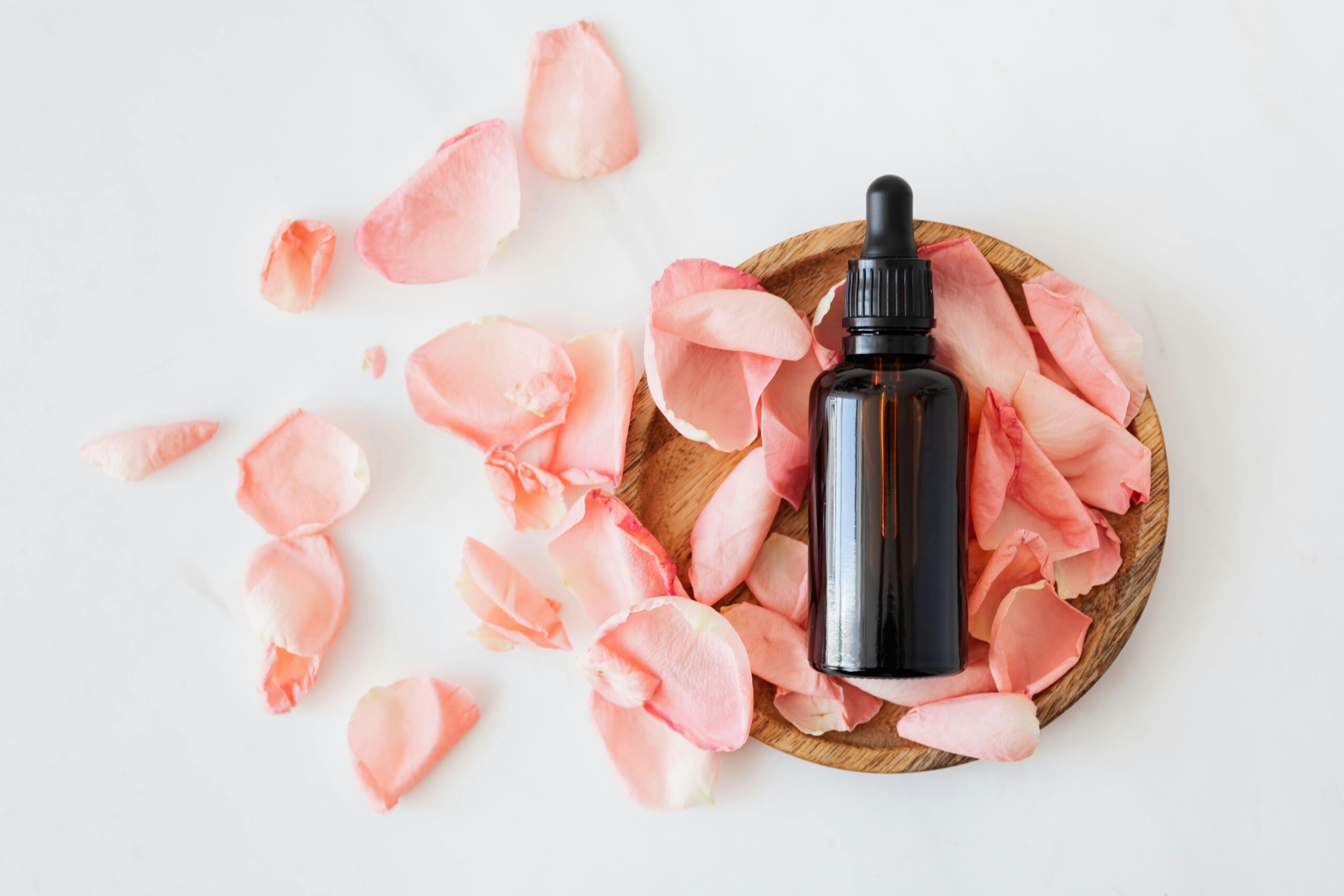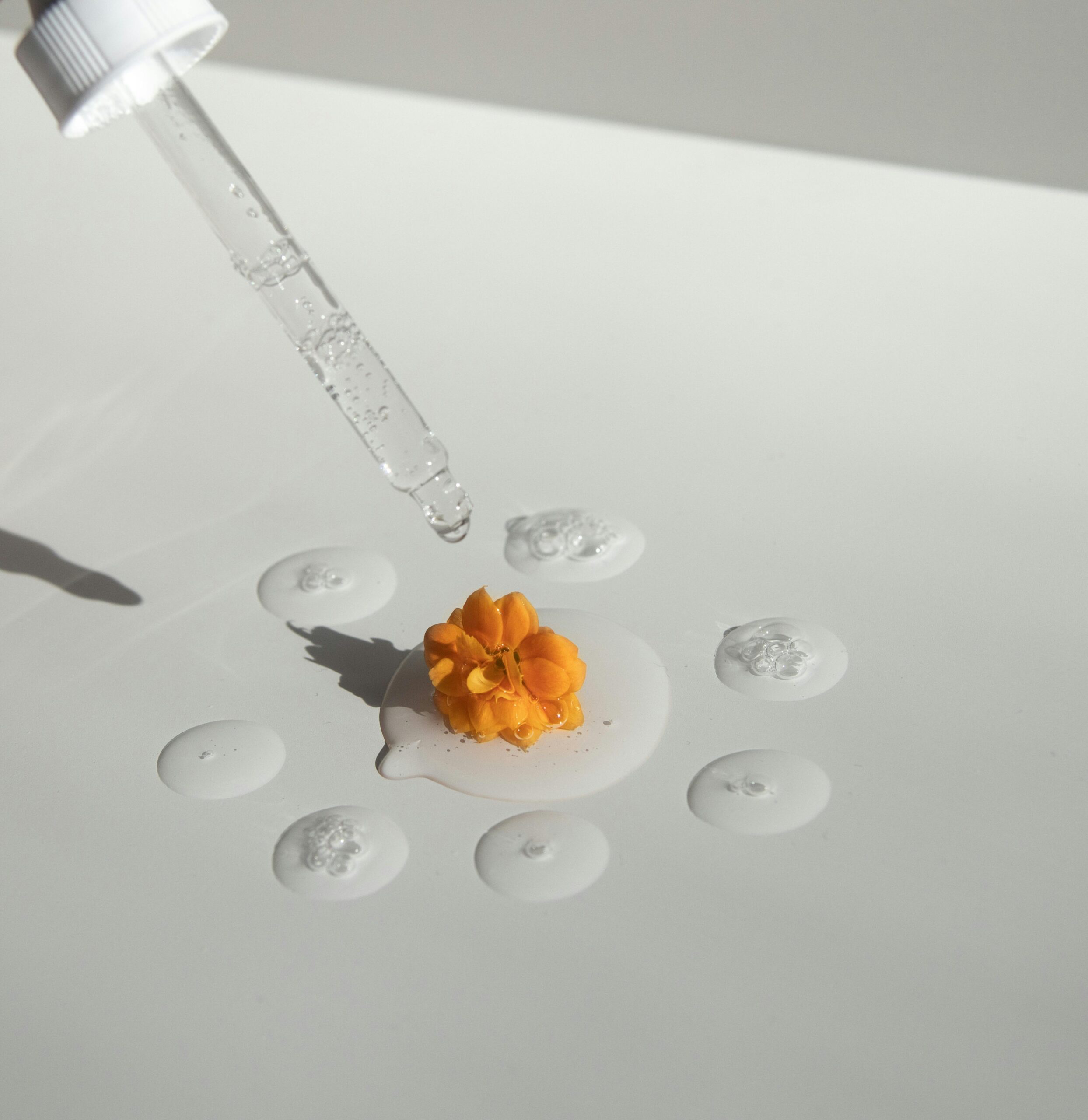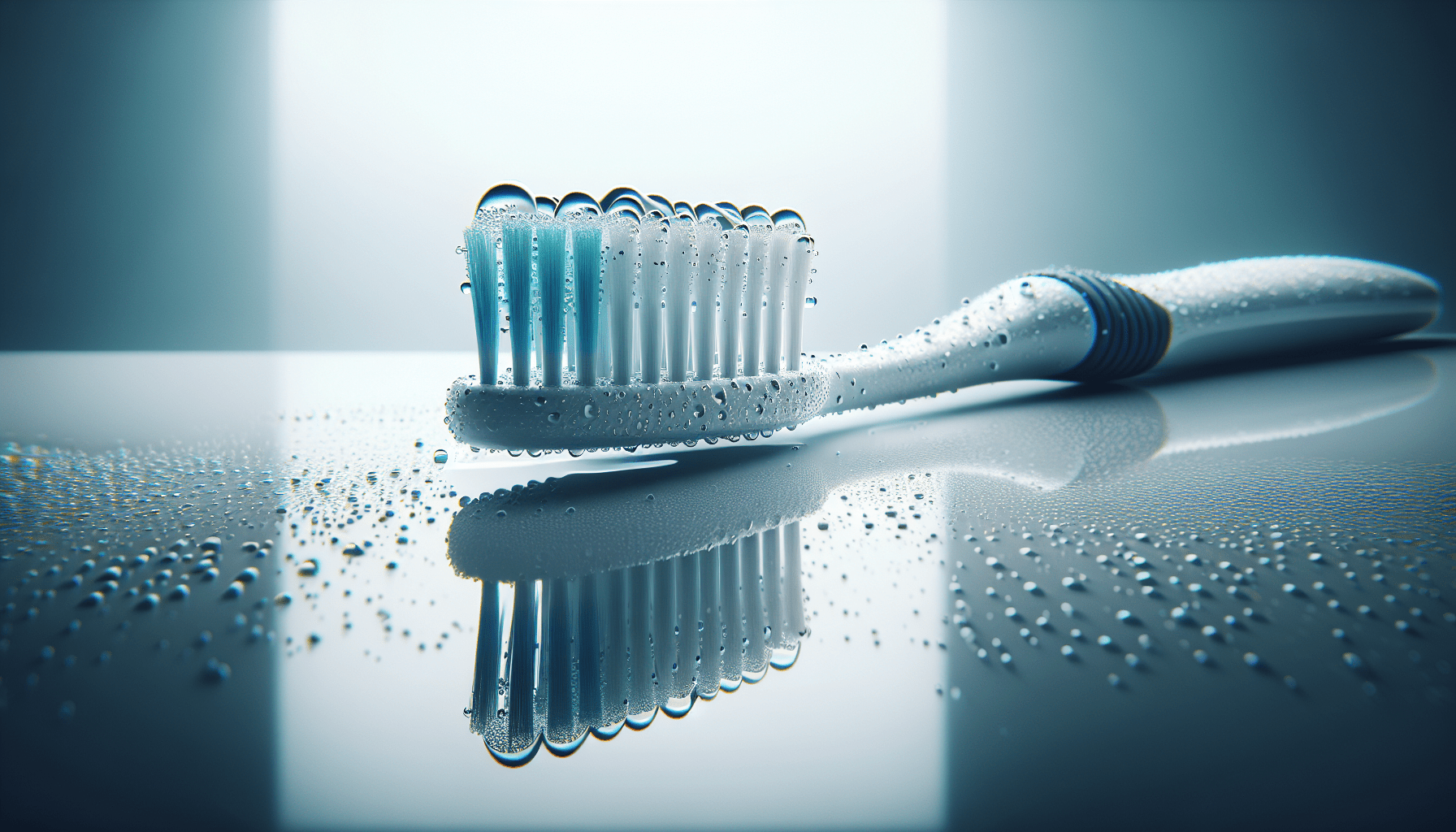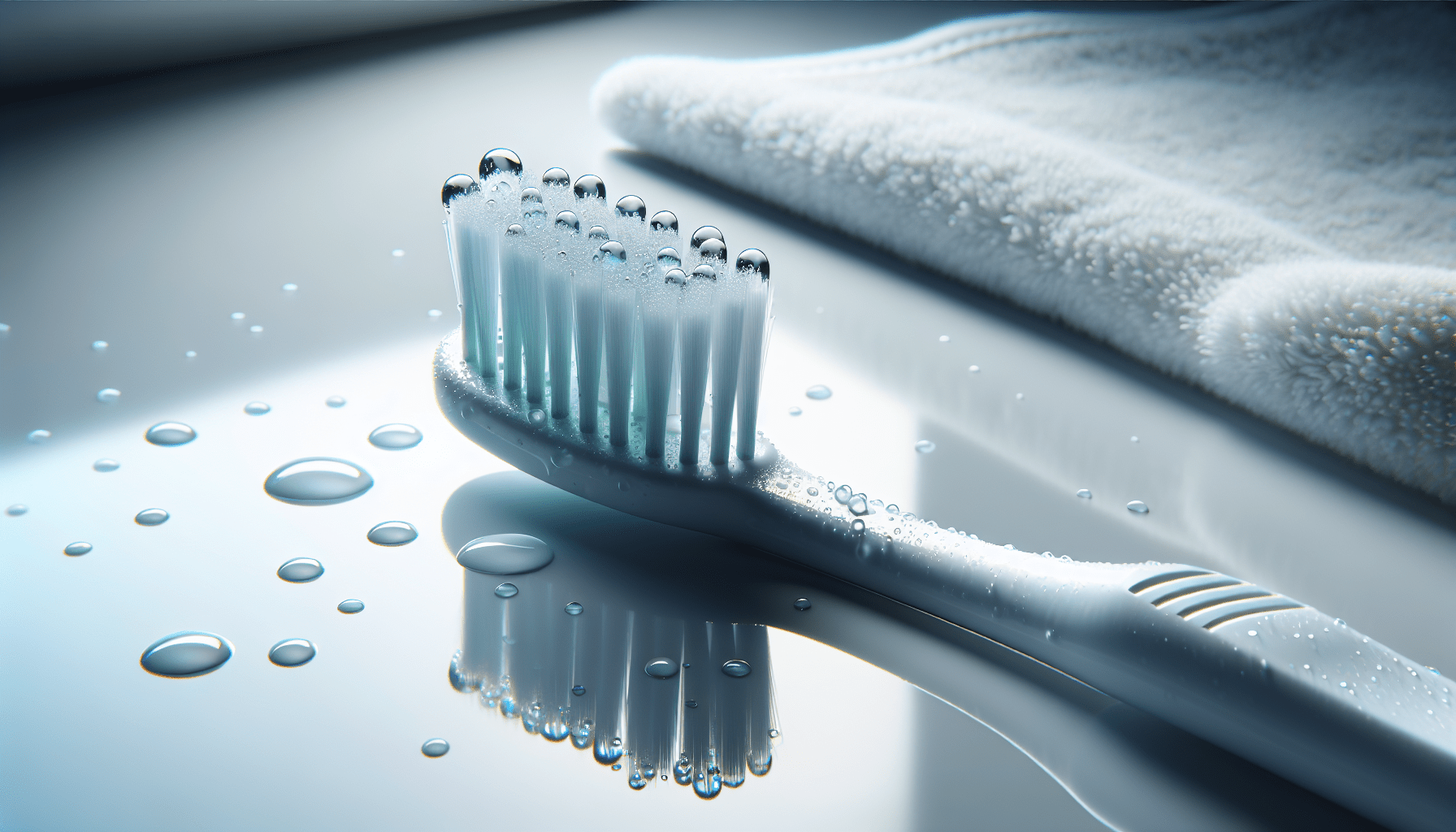Have you ever wondered why despite regular brushing, some people still suffer from gum problems? Preventing gum issues requires more than just a quick brush and floss. It is about adopting a comprehensive and consistent oral care routine tailored to address the specific needs of your gums. This article will take you through the critical steps to preserve healthy gums and prevent common gum problems.

Understanding Gum Problems
Gum problems can range from mild irritation to severe disease impacting your overall oral health. Recognizing the early signs and acting promptly can make a world of difference in maintaining a healthy mouth.
What Are Gum Problems?
Gum problems, or periodontal diseases, include conditions like gingivitis and periodontitis. Gingivitis is the inflammation of the gums, while periodontitis is a more severe condition that affects the bones supporting your teeth.
Common Symptoms of Gum Problems
Recognizing the symptoms of gum problems is crucial for early intervention. Some common symptoms include:
- Red, swollen, or tender gums
- Bleeding gums during brushing or flossing
- Receding gums
- Persistent bad breath
- Loose or shifting teeth
The Importance of Oral Hygiene
Practicing good oral hygiene is the cornerstone of preventing gum problems. Properly cleaning your teeth and gums helps to remove plaque, a soft, sticky film of bacteria that builds up on your teeth and can lead to gum disease.
Brushing Techniques
How you brush your teeth significantly impacts your gum health. A suitable technique can enhance plaque removal and protect your gums.
- Use a soft-bristled toothbrush.
- Place your toothbrush at a 45-degree angle to the gums.
- Gently move the brush back and forth in short (tooth-wide) strokes.
- Brush the outer surfaces, the inner surfaces, and the chewing surfaces of the teeth.
- To clean the inside surfaces of the front teeth, tilt the brush vertically and make several up-and-down strokes.
Frequency of Brushing
For optimal gum health, you should brush your teeth at least twice a day, preferably after meals, to remove food particles and plaque. However, brushing too frequently or too harshly can damage your gums and teeth, so be gentle and use proper techniques.
The Role of Flossing
Flossing is an essential part of your oral care routine. It helps remove plaque and food particles from between your teeth and under the gumline, areas a toothbrush can’t reach.
Proper Flossing Method
To floss effectively, follow these steps:
- Use about 18 inches of floss, winding most of it around each middle finger, leaving an inch or two to work with.
- Holding the floss taut between your thumbs and index fingers, slide it gently up and down between your teeth.
- Gently curve the floss around the base of each tooth, making sure to go beneath the gumline. Never force or snap the floss.
- Use clean sections of floss as you move from tooth to tooth.
Flossing Frequency
You should floss at least once a day. Night-time flossing is advisable as it removes the plaque and food particles accumulated during the day, preventing the formation of bacteria overnight.
Mouthwash and Its Benefits
Using mouthwash can be beneficial in preventing gum problems. Mouthwashes help to reduce plaque, fight bad breath, and prevent or reduce gingivitis.
Types of Mouthwash
There are different types of mouthwash tailored for various needs:
| Type | Purpose | Example Ingredients |
|---|---|---|
| Antiseptic Mouthwash | Reduces bacteria causing plaque and gum disease | Chlorhexidine, Alcohol |
| Fluoride Mouthwash | Strengthens tooth enamel and prevents cavities | Sodium Fluoride |
| Cosmetic Mouthwash | Freshens breath, provides temporary relief from bad breath | Menthol, Eucalyptus Oil |
| Natural Mouthwash | Free from alcohol and chemicals for those preferring natural options | Essential Oils, Aloe Vera |
Using Mouthwash Effectively
To get the most out of your mouthwash:
- Use the appropriate amount as instructed on the label.
- Swish vigorously between your teeth for about 30 seconds.
- Spit out the mouthwash, and avoid eating or drinking for at least 30 minutes to allow the active ingredients to work.

Diet and Gum Health
Your diet significantly impacts your oral and gum health. Consuming nutrient-rich foods can help maintain healthy gums and teeth.
Nutrients Essential for Gum Health
Certain nutrients are critical in maintaining gum health:
| Nutrient | Sources | Benefits |
|---|---|---|
| Vitamin C | Citrus fruits, strawberries | Promotes healthy gums and connective tissues |
| Calcium | Dairy products, leafy greens | Strengthens teeth and bones |
| Vitamin D | Sunlight, fortified foods | Enhances calcium absorption |
| Omega-3 Fatty Acids | Fish, flaxseeds, walnuts | Reduces gum inflammation |
Foods to Avoid
Certain foods can be detrimental to gum health. Avoiding these can help prevent gum problems:
- Sugary snacks and drinks: They promote plaque formation.
- Sticky foods: They tend to cling to teeth and gums, increasing decay risk.
- Acidic foods: They can erode the enamel and irritate the gums.
Regular Dental Checkups
Regular dental checkups are vital in preventing gum problems. Your dentist can detect early signs of gum disease and provide appropriate treatments to maintain your oral health.
Frequency of Dental Visits
It’s generally recommended to visit your dentist twice a year for routine checkups and cleanings. However, if you have a history of gum disease, your dentist may suggest more frequent visits.
What to Expect During a Dental Checkup
During a dental checkup, your dentist will:
- Examine your gums for signs of disease.
- Measure the depth of the pockets around your teeth.
- Remove plaque and tartar buildup.
- Provide advice on maintaining healthy gums and teeth.

Quitting Smoking
Tobacco use, whether smoking or chewing, is harmful to your gums and overall oral health. It reduces blood flow to the gums, making them more susceptible to infections and delays healing.
The Impact of Smoking on Gum Health
Smoking contributes to gum disease in several ways:
- It weakens your immune system, making it harder to fight infections.
- It reduces blood flow to the gums, impairing their ability to heal.
- It increases plaque and tartar buildup on the teeth.
Tips to Quit Smoking
Quitting smoking is challenging but achievable. Here are some tips to help you:
- Set a Quit Date: Choose a date to quit and stick to it.
- Seek Support: Join a support group or seek professional help.
- Use Nicotine Replacements: Nicotine gums, patches, or lozenges can help manage withdrawal symptoms.
- Stay Busy: Engage in activities that keep your mind off smoking.
Managing Stress
Stress can negatively impact your oral health, leading to habits that harm your gums, such as teeth grinding and clenching.
How Stress Affects Gum Health
Stress can lead to several oral health issues, including:
- Increased susceptibility to gum disease due to weakened immune response.
- Bruxism (teeth grinding), causing wear and damage to teeth and gums.
- Neglect of oral hygiene routines.
Stress-Management Techniques
Implementing stress-management techniques can help maintain your oral health:
- Exercise Regularly: Physical activity helps reduce stress.
- Practice Relaxation Techniques: Yoga, meditation, and deep-breathing exercises can help manage stress.
- Maintain a Balanced Diet: Proper nutrition can enhance your body’s ability to handle stress.
- Get Adequate Sleep: Quality sleep is crucial for stress management and overall health.

Using the Right Dental Products
Choosing the right dental products is essential in preventing gum problems. Not all products are created equal, and selecting those that meet your specific needs can make a significant difference.
Toothpaste Selection
Choose a toothpaste that addresses your particular oral health needs. Here are some options:
| Toothpaste Type | Purpose | Key Ingredients |
|---|---|---|
| Fluoride Toothpaste | Prevents cavities, strengthens enamel | Sodium fluoride |
| Tartar Control Toothpaste | Reduces tartar build-up | Pyrophosphates, Zinc citrate |
| Sensitivity Toothpaste | Reduces tooth sensitivity | Potassium nitrate, Strontium chloride |
| Whitening Toothpaste | Removes surface stains | Abrasive agents, Hydrogen peroxide |
| Herbal/Natural Toothpaste | For those preferring natural ingredients | Essential oils, Aloe vera |
Choosing the Right Toothbrush
Select a toothbrush that ensures effective cleaning without harming your gums:
- Bristle Firmness: Soft bristles are generally recommended as they are gentle on your gums and teeth.
- Electric vs. Manual Toothbrush: Electric toothbrushes can be more effective in removing plaque but choose one that you are comfortable using.
Importance of Interdental Brushes
Interdental brushes or picks can be particularly beneficial if you have large gaps between your teeth or braces. These tools help to clean spaces that regular floss might miss.
Addressing Dry Mouth
Dry mouth, or xerostomia, can lead to gum problems by reducing saliva production. Saliva is essential in maintaining oral health as it helps to wash away food particles and neutralize acids produced by bacteria in the mouth.
Causes of Dry Mouth
Dry mouth can be caused by several factors, including:
- Certain medications
- Medical conditions such as diabetes
- Dehydration
- Smoking or tobacco use
Managing Dry Mouth
Here are some strategies to manage dry mouth and protect your gums:
- Stay Hydrated: Drink plenty of water throughout the day.
- Use Saliva Substitutes: Over-the-counter saliva substitutes can help keep your mouth moist.
- Chew Sugar-free Gum: This can stimulate saliva production.
- Avoid Caffeine and Alcohol: Both can dry out the mouth further.

Importance of Hydration
Maintaining adequate hydration is crucial for your overall health, including your gum health. Water helps keep the mouth moist and washes away food particles and bacteria.
Benefits of Staying Hydrated
Drinking sufficient water offers several benefits for your gums and oral health:
- Prevents Dry Mouth: Keeps your mouth moist and washes away food particles.
- Aids in Digestion: Helps with the breakdown of food, reducing the risk of acid reflux, which can damage teeth and gums.
- Reduces Bacteria: Keeps the level of bacteria in your mouth under control.
Importance of a Balanced Diet
Adopting a balanced diet rich in vitamins and minerals can significantly impact your gum health. Nutritious foods help your body fight infections and promote healthy tissues.
Foods for Healthy Gums
Incorporate these foods into your diet for healthier gums:
- Leafy Greens: Rich in vitamins and minerals that boost oral health.
- Apples and Carrots: Crunchy fruits and vegetables that help clean teeth and stimulate gums.
- Dairy Products: Sources of calcium that strengthen teeth and bones.
- Nuts and Seeds: Provide essential nutrients like omega-3 fatty acids and protein that support gum health.
Avoiding Harmful Habits
Certain habits can harm your gums and overall oral health. Being aware of these and taking steps to avoid them can help maintain healthy gums.
Common Harmful Habits
Here are some habits to avoid for healthy gums:
- Nail Biting: Can introduce harmful bacteria into your mouth and damage your teeth and gums.
- Chewing Ice: Can crack or damage your teeth, leading to gum irritation.
- Using Teeth as Tools: Opening packages or biting on hard objects can harm your teeth and gums.
Recognizing When to Seek Professional Help
While preventive care at home is crucial, recognizing when to seek professional help is equally important. Some symptoms require immediate attention from a dental professional.
Indicators for Professional Intervention
Seek professional help if you experience:
- Severe pain in your gums
- Gums that bleed heavily or do not stop bleeding
- Loose or shifting teeth
- Persistent bad breath that doesn’t improve with oral hygiene
- Changes in the way your teeth fit together when you bite
Keeping Track of Your Gum Health
Keeping a log of any symptoms or changes in your gums can be helpful when visiting your dentist. This can provide your dentist with valuable information and assist in diagnosing and treating any issues effectively.
Summary: Steps to Healthy Gums
In summary, preventing gum problems involves a comprehensive approach, including proper oral hygiene, a balanced diet, regular dental checkups, and avoiding harmful habits. Here’s a quick checklist for maintaining healthy gums:
| Component | Actions |
|---|---|
| Oral Hygiene | Brush twice daily, floss once daily, use mouthwash |
| Healthy Diet | Consume nutrient-rich foods, avoid sugary and acidic foods |
| Regular Dental Visits | Visit your dentist at least twice a year |
| Quit Smoking | Seek support and use nicotine replacements |
| Manage Stress | Practice relaxation techniques and exercise regularly |
| Use Right Dental Products | Choose toothpaste and toothbrush suitable for your needs |
| Stay Hydrated | Drink plenty of water daily |
| Avoid Harmful Habits | Refrain from nail biting, chewing ice, using teeth as tools |
By following these steps, you can significantly reduce your risk of gum problems and enjoy a healthy, vibrant smile. Adopt these practices and commit to a lifetime of excellent gum health.
